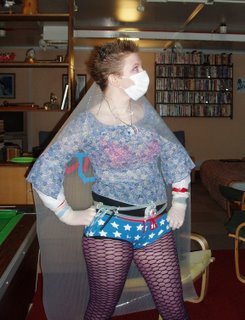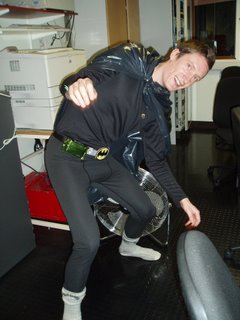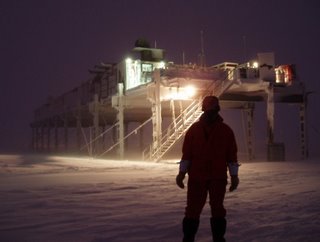July
Today marks itself as the end of dark winter. The sun hasn't come up yet- it still sits quietly behind the horrizon lighting the sky a little more each day.
It's the end of dark winter because it was light enough to KITE!!! I love kiting. It rocks, and I can do it now - jumping and everything.
July is know for being a 'down month'. I suppose the fact that I haven't posted since the end of MidWinter proves it effected me. We've been doing a few odd things, just nothing major.
SUPERHERO NIGHT
Theme night no. ** (think of a big number).
Since there are no good female superheroes I made my costume using used bits and bobs from the CASLab. We do a daily filter change and a fornightly mega clean filter change using all sorts of gloves, masks, arm protectors etc, so I used a few of those. I also got some broken daily filters and used them on my utility belt and necklace.
 In costume.
In costume. NO CAPES!!! Batman getting caught in the computer room.
NO CAPES!!! Batman getting caught in the computer room.Otherwise we've been getting on with alsorts. General living mainly. Outside it's been getting quite exciting. After going through a good purple stage the sky has been getting lighter with climaxing to an almost blue colour a few days ago.

A LilacOut. Like a WhiteOut, met code 9**** but with a purple tinge. Alex in front.

A LilacOut. Like a WhiteOut, met code 9**** but with a purple tinge. Alex in front.



